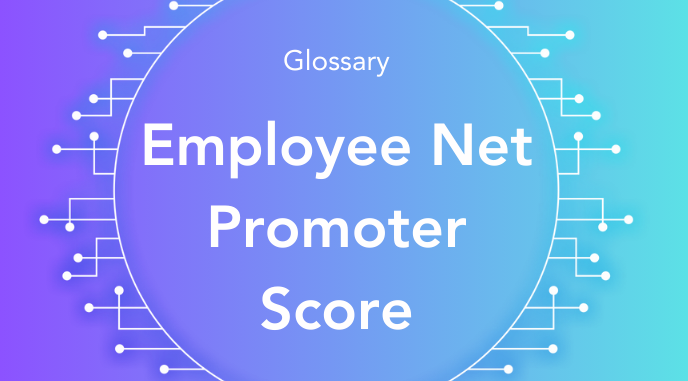- glossary
Employee Net Promoter Score (eNPS) is a metric used to gauge employees' loyalty and satisfaction within an organization. It is derived from the Net Promoter Score (NPS) used to measure customer loyalty. eNPS measures the likelihood of employees to recommend their workplace to others. This metric is crucial for understanding employee sentiment, identifying areas for improvement, and fostering a positive organizational culture.
Calculation:
-
Survey Question: Employees are typically asked a single question: “On a scale of 0 to 10, how likely are you to recommend our company as a place to work?”
-
Categorizing Responses:
-
Promoters (9-10): Highly satisfied employees who are likely to recommend the company.
-
Passives (7-8): Satisfied but not enthusiastic employees who might not actively promote the company.
-
Detractors (0-6): Unhappy employees who are unlikely to recommend the company and might even discourage others.
-
Formula: eNPS = % of Promoters - % of Detractors
-
The score ranges from -100 to +100. A positive score indicates more promoters than detractors, while a negative score indicates more detractors.
Applications:
-
Identifying levels of employee engagement and areas where engagement can be improved.
-
Understanding factors that contribute to employee dissatisfaction and addressing them to reduce turnover.
-
Gaining insights into the overall workplace culture and how it can be enhanced.
-
Comparing eNPS scores over time or against industry benchmarks to track progress and competitiveness.
-
Providing a channel for employees to voice their opinions and concerns, leading to actionable feedback for management.
Benefits:
-
The eNPS survey is straightforward, easy to administer, and understand.
-
Helps identify promoters who can be leveraged as brand ambassadors and detractors whose concerns need addressing.
-
Regularly measuring eNPS allows organizations to track changes in employee sentiment and the effectiveness of initiatives aimed at improving workplace satisfaction.
-
Encourages a culture where employees feel their opinions are valued and can lead to increased employee advocacy.

.png?width=50&height=50&name=Team%20HONO%20logo-01%20(1).png)



